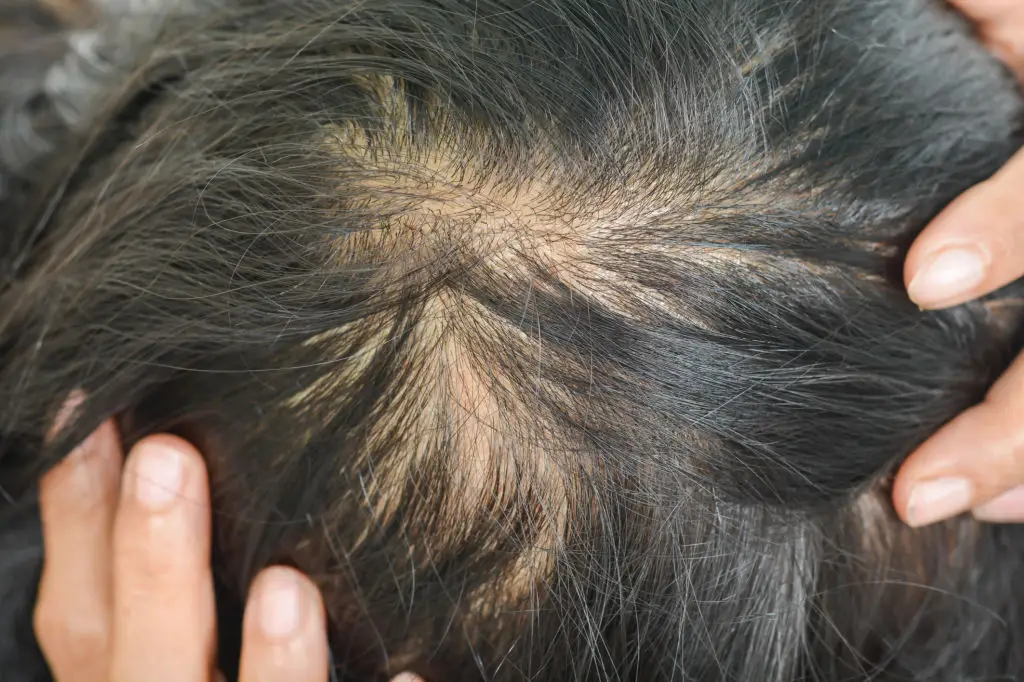11 Silent Autoimmune Alarms Your Dermatologist Won't Catch
Our bodies are always talking to us, though not always in ways that are easy to interpret. When it comes to autoimmune diseases, these signals can be especially subtle—whispering instead of shouting, hiding in plain sight outside the obvious skin issues most of us expect. While dermatologists are invaluable allies for anything skin-deep, the earliest clues of immune dysfunction often slip right by undetected, showing up in ways that don’t leave their mark on our skin at all. That’s why learning to recognize these less obvious warnings is one of the kindest things we can do for ourselves.
1. Persistent, Unexplained Fatigue

There’s tired, and then there’s the kind of deep, bone-weary exhaustion that no nap can fix. For many living with undiagnosed autoimmune conditions, this type of fatigue is often the first sign that something more is happening beneath the surface. Unlike the temporary drag of a late night or busy week, autoimmune fatigue can linger for weeks or months, coloring every part of daily life with heaviness. Dermatologists, focused primarily on the skin, may never hear about this daily struggle—especially if your bloodwork is otherwise “normal.”
2. Achy or Stiff Joints, Especially in the Morning

An early, underappreciated clue of autoimmune trouble is waking up with stiff, achy joints—especially if it lingers longer than a few minutes. Morning stiffness that makes getting out of bed feel like wading through wet cement can be one of the earliest warnings of conditions like rheumatoid arthritis or lupus, both of which are classic autoimmune diseases. These aches may come and go, and sometimes there’s no obvious swelling or warmth to clue dermatologists in when you’re there for something unrelated.
3. Unexplained Digestive Issues or Bloating

Bloating, cramping, changes in bowel habits, or lingering digestive discomfort are surprisingly common among people with autoimmune conditions, yet these gut symptoms rarely start as a skin issue. While many assume tummy troubles are just the price of busy living or occasional dietary choices, they can sometimes be the first signs that your immune system is misfiring. Autoimmune diseases like celiac, Crohn’s, and lupus can affect how your digestive system functions, causing symptoms that come and go or seem unrelated to anything you’ve eaten.
4. Subtle Nerve Symptoms: Tingling, Numbness or Burning

Those tingling “pins and needles,” bouts of numbness, or even odd burning sensations in hands and feet can be more than fleeting annoyances—they might be whispers from your immune system, telling you to pay attention. Autoimmune diseases, including multiple sclerosis, lupus, or Sjögren’s syndrome, may cause the immune system to disrupt nerves subtly at first. These symptoms may come and go, or switch locations, making them easy to dismiss or chalk up to poor circulation or sleeping posture.
5. Dry Eyes or Dry Mouth, Not Just Aging

It’s easy to attribute parched eyes or a dry, sticky mouth to aging, allergies, or medications. Yet, for some, persistent dryness is the immune system’s way of crying out for help. Sjögren’s syndrome—an autoimmune disorder well-known for drying out the body’s moisture-producing glands—often develops so quietly that even experienced dermatologists overlook it, especially if you don’t bring up how much your eyes or mouth are bothering you.
6. Unexplained Low-Grade Fever or Chills

Sometimes, autoimmune alarms sound softly: a low-grade fever or intermittent chills that don’t come with a cold or obvious infection. These subtle temperature changes—a slight bump above your normal but not enough for a classic fever—can be a sign your immune system is in overdrive. Many people with autoimmune conditions, especially early on, notice waves of unexplained warmth, sweats, or chills that just seem out of place.
7. Sudden Hair Thinning or Patchy Loss

Hair is often seen as a barometer for our overall health, but when it starts to thin noticeably or fall out in patches, we tend to reach for shampoos or scalp treatments before thinking about our immune system. Autoimmune types of hair loss, such as alopecia areata, thyroid-related conditions, or lupus, may not always create visible scalp inflammation—making it possible for hair to disappear without much fuss otherwise.
8. Brain Fog or Concentration Difficulties

Ever felt like your thoughts are swimming in slow motion or that ordinary tasks require more mental effort than before? That’s what many describe as “brain fog” — a cloudy, sluggish feeling that can sneak in as an early signal of systemic autoimmune activity. This mental haze often makes people second-guess themselves, wondering if it’s just stress, hormones, or the natural pace of a busy life.
9. Unexplained Weight Changes

Autoimmune disease can throw metabolism and appetite into chaos, sometimes causing unplanned weight loss or gain that just doesn’t seem to add up. These shifts, when not otherwise explained by changes in diet, activity, or routine, can be red flags for thyroid autoimmunity, gut inflammation, or even conditions like lupus.
10. Odd Sensitivities: Sun, Heat, or Cold

Some of the immune system’s earliest whispers come in the form of new—or intensified—sensitivities to sunlight, heat, or cold. Photosensitivity, a classic warning sign of lupus and some other autoimmune diseases, can cause rashes, hives, or even systemic symptoms like headaches and joint aches after limited sun exposure, even if nothing shows on your skin right away. Raynaud’s phenomenon, on the other hand, causes fingers or toes to change color or tingle in cold or stress—sometimes long before any other symptoms appear.
11. Non-Healing Mouth Sores or Ulcers

Occasional canker sores are common, but when sores inside the mouth become frequent, persistent, or slow to heal, your immune system may be reaching out for extra attention. Autoimmune conditions such as lupus, celiac disease, or Behçet’s can present with recurring ulcers or sores that don’t respond well to typical home remedies. These aren’t always visible to dermatologists and might also fly under the radar at dental or routine medical checkups.
Giving Yourself Permission to Seek More Answers

Experiencing any one of these symptoms doesn’t mean you have an autoimmune disease—life is full of surprises and unexplainable shifts. But when patterns form, and several of these gentle warnings appear without clear cause, it’s a sign your body wants to be heard. Letting yourself see these subtle alarms as acts of inner wisdom, not weakness, is a powerful act of self-care.